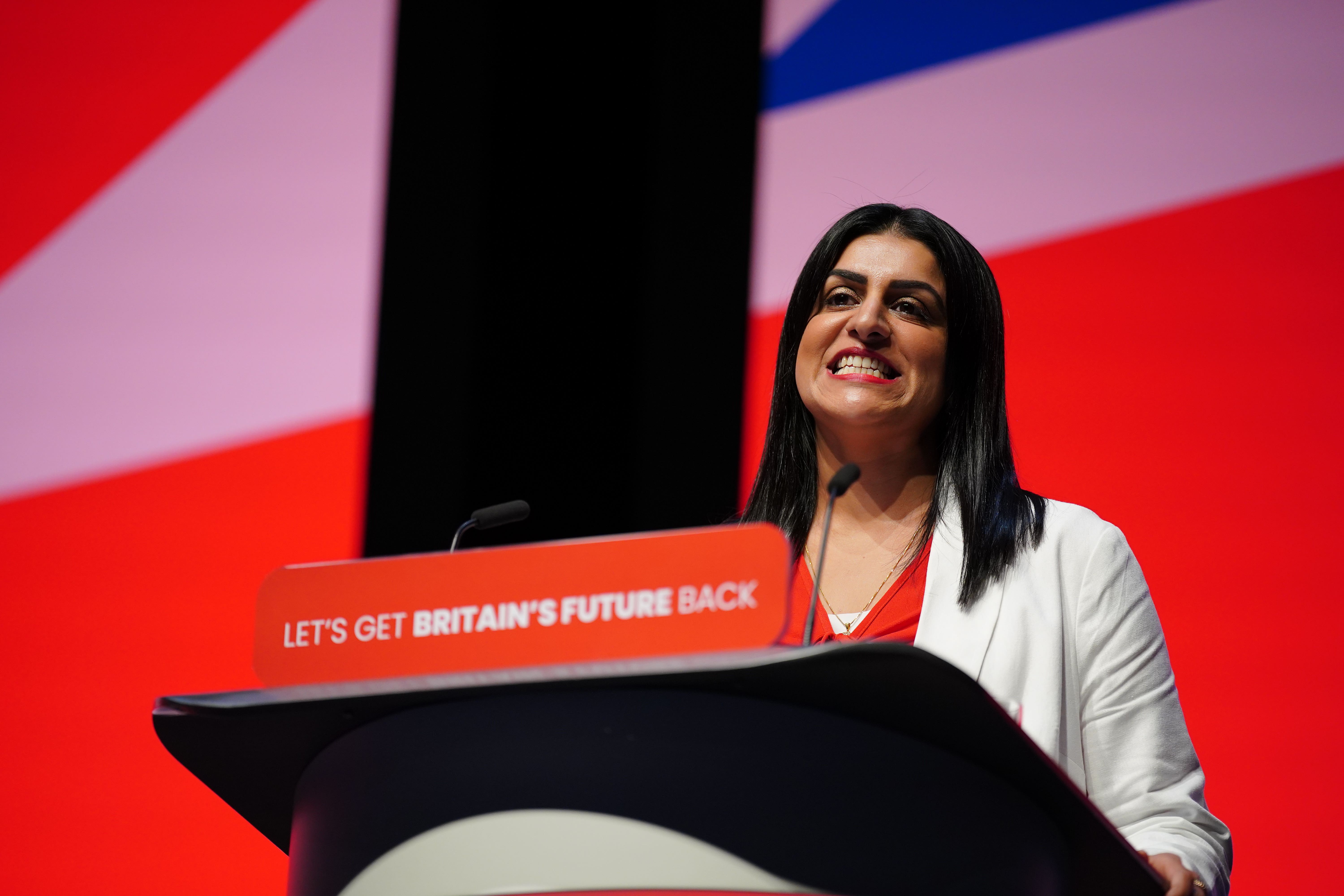Your support helps us to tell the story
From reproductive rights to climate change to Big Tech, The Independent is on the ground when the story is developing. Whether it's investigating the financials of Elon Musk's pro-Trump PAC or producing our latest documentary, 'The A Word', which shines a light on the American women fighting for reproductive rights, we know how important it is to parse out the facts from the messaging.
At such a critical moment in US history, we need reporters on the ground. Your donation allows us to keep sending journalists to speak to both sides of the story.
The Independent is trusted by Americans across the entire political spectrum. And unlike many other quality news outlets, we choose not to lock Americans out of our reporting and analysis with paywalls. We believe quality journalism should be available to everyone, paid for by those who can afford it.
Your support makes all the difference.Labour will use emergency powers to build new prisons and stop criminals being released months early because of overcrowding, if it wins the next election.
Shabana Mahmood, the shadow justice secretary, said the state of jails was a "national emergency".
Labour would use planning laws to say the construction of new buildings must be completed "as a matter of urgency".
Alex Chalk, the justice secretary, has expressed "significant frustration" that prison expansion had been "bogged down" by the system.
He is also thought to have privately warned Rishi Sunak that prison places could run out within weeks.
Ms Mahmood said she would "deliver where the Tories have failed and get to that 20,000 (extra places) as soon as possible" and no later than 2030, in an interview with the Sunday Times.
She said: "For too long in this country, we just haven't been able to build anything. This country needs the delivery of those prison places. I am just not prepared to put public protection further at risk."
Ms Mahmood also said her plan would use the existing £4 billion budget for prisons.
She added that the Conservatives could not claim to be the "natural party of law and order" but accepted some people may have "an assumption about the way Labour will do things. What I would say is I'm interested in doing things that cut crime and keep people safe. And I absolutely do believe that people need to be punished."
She also talked of the impact of the war in Gaza after Keir Starmer appeared to say on LBC radio that Israel had the right to withhold water and power from the besieged enclave.
"It leaves people feeling hurt, misunderstood, delegitimised," she said. "I think the LBC interview and a couple of other things about that period led to a loss of trust between us and the British Muslim community which obviously we need to put right." Asked can it be put right, she said: “I think so" though it is "not easy" and "people are hurt".

In January a former chief inspector of prisons accused the government of announcing “panicky” measures to tackle the prisons capacity crisis.
Nick Hardwick, now a professor of Criminal Justice at Royal Holloway University, has called for a radical rethink, with inmates trapped in squalid, overcrowded conditions in their cells for 23 hours a day.
Last October in an attempt to deal with the crisis Alex Chalk announced a series of emergency proposals, including releasing some prisoners early and plans to rent prison space overseas.
Mr Hardwick warned that prison building has not kept pace with the speed of the population increases.
In September it emerged that plans for an extra 20,000 prison places by the mid-2020s are not expected to be completed until 2030, because of planning delays.
Subscribe to Independent Premium to bookmark this article
Want to bookmark your favourite articles and stories to read or reference later? Start your Independent Premium subscription today.

Join our commenting forum
Join thought-provoking conversations, follow other Independent readers and see their replies
Comments